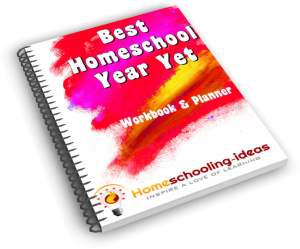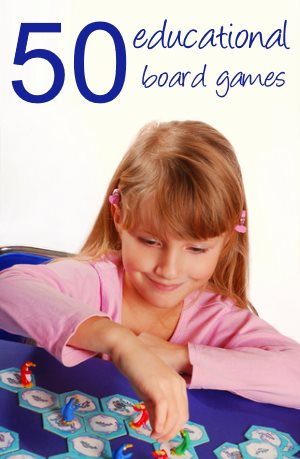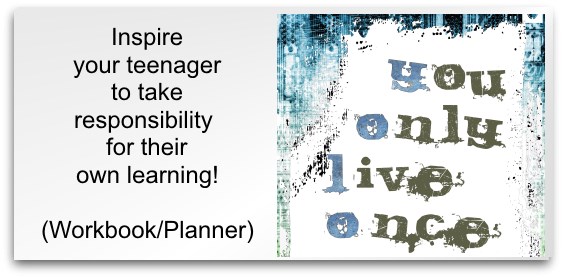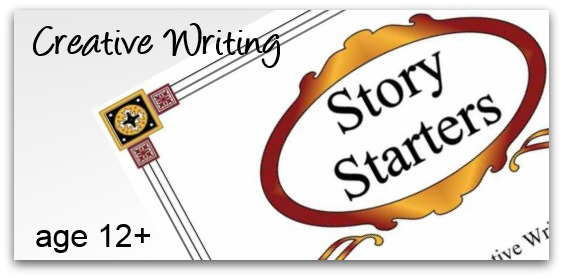How to Home School
FAQ on How to Begin Homeschooling
Home >> Start Homeschooling >> How to Home School
When you are first wondering about how to begin homeschooling, it is common to come up with a number of questions about it.
Making the Decision
Can I do homeschooling?
As long as it isn't illegal in your country, then most people can homeschool. A lot of it is about attitude rather than your knowledge or education. Can I do homeschooling? covers this in more depth and worth a read if you are worry about your capabilities :)
Don't I have to be a teacher?
Legally no, for the UK and US. In most States in the US you don't even need a high school diploma.
Because homeschools can be so varied, then I almost think that being a teacher would be more of a hinderance than a help in knowing how to home school. One of the first things you learn when you start to homeschool is to throw out any idea that learning only takes place between certain hours, whilst sitting at a desk. A whole new world of opportunites for learning is about to be opened up to you, very unlike anything that schools do.
Not convinced? - find out more.
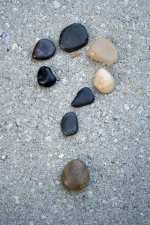
Do I need a classroom?
Not unless you you want one (and have space for one). Despite popular belief, a lot of leaning can take place away from the kitchen table. A hammock in the garden, or under the trees at the local park can be ideal places to learn.
How much does it cost? Isn't it Expensive?
Homeschooling can be very flexible as to how much you spend.
Yes, a packaged homeschool curriculum can be expensive. But this may be offset by the costs of school uniforms, school dinners, and the school mindset of needing the latest sneakers!
(NOTE: According to the National Association of Elementary School Principals (NAESP), the fraction of American public schools requiring school uniforms rose from 3% in 1997 to 21% in 2000 - source, Wikepedia).
Homeschool itself can be done on a budget. For more information see ;
When should I start - what age should my child be?
In a way you have already started - I am sure you spend time talking and playing with your child. Homeschooling is just more of the same. (See! You already know how to home school).
As your child gets older, they will have more questions and become more interested in the world around them. Take this as your cue and start gently to introduce more learning opportunites. Read books together, take a nature walk, visit a museum. Point out things of interest, count cookies, and answer questions.
For more information see What Age to Start Homeschooling
How do they socialize?
This is one of the great myths - that homeschooled children won't be socialised. There are lots of opportunites to socialise (homeschool groups, sports activities, art clubs etc.)
In a study by the University of Durham (UK) in 2002, Paula Rothermel found :
- "Children who learn at home appear to develop very different skills from those learning in school. Such children integrate easily into a variety of social settings and are accustomed to taking responsibility within their families and to motivating themselves in their day to day activities."
I cover this in more detail in the Homeschool Socialization page.
More Questions
How can you tell they are learning?
It is very difficult over a short period of time to tell what, if anything children are learning, especially if you are unschooling or following a relaxed homeschooling approach. So it does take a lot of faith to understand that the children will be learning.
In the same way that they learnt to speak or to turn on the TV(!) they will be soaking up all kinds of information from their environment. Keep going - they will soon surprise you by mentioning a fact that YOU didn't know.
How do you find the resources you need?
Homeschooling is BIG business. There are lots of companies out there that will try to sell you the 'perfect' homeschooling package.
Try to take some time to look around at what is available before deciding what will suit you. There are lots of free resources and materials on the internet. Keep an eye out for suitable books or workbooks (try libraries and yard sales). One of the best ways to find great resources is to ask other homeschoolers what they use.
To get you started :
What subjects should I cover?
You may have some legal requirements about subjects depending on your State, or country. But on the whole you can be flexible. An ideal place to start is what children are interested in. Don't feel that the subject has to be 'a worthy' one. ALL subjects are worthy.
In the words of John Holt, in his book Teach Your Own:
- "It is not possible for an inquisitive child to delve deeply into dinosaurs without wondering about, and learning, how big they were (measurements), how many roamed a certain area (arithmetic), where they lived (goegraphy), what happened to them (history), etc."
How do I deal with my other toddlers or babies.
There are several approaches you could take!
When my children were small, I found a good time to do something more 'grown-up' with my older child, was whilst my younger child was napping. As he got slightly older (and refused to nap!) then I had to get more creative in including him in our activities.
Sometimes a special 'toy box' full of interesting items would distract him while I did something different with my older one. Other times, I got organised so he could join in. Many of the ideas in my ideas section can be tailored to working with more than one child at a time - even if they are at different levels. Lapbooks are also great for this.
How many hours should we study each day?
I cover this on the seperate page How Many Hours to Homeschool
If you would like to see some sample schedules (including one hour homeschooling schedules), then see my page How to Make a Home School Schedule.
What if I don't know the answer?
Learn alongside your child.
With homeschooling being so varied and wide ranging in the subjects you may cover, it is impossible for you to know everything you may need to know. You can teach your child good research habits by saying "I don't know - let's find out".
Letting your child see you studying and learning is one of the best gifts you could give them.

I hope this 'How to Home School' section has been useful to you.
There is lots more information on this site about how to home school - so be sure to look around.
Not had you your question on how to home school answered? Why not ask me and I will see if I can help.
Leave How to Home School for Homeschooling-Ideas.com Home Page
Leave How to Home School for Start Homeschooling
Lovely messages sent from visitors like you:
Oh my goodness! I am a home schooling mum of 4 and I have NEVER found a better site! Thank you so much.
Blessings, Jenny (New Zealand)
I wanted to say THANK YOU for your fabulous website. I found your website, and finally I have the confidence to take the plunge and take my daughter out of school and educate her at home, thank you, thank you.
Marina (UK)
I cannot get over how much great information and super ideas you have here. Fantastic!
Ruralmama (USA)
This is simply fabulous!! I just now found this site and I'm so excited!! The opportunities and suggestions as well as the need to inspire are exactly what I have been searching to fulfill!! I'm so thrilled to get started and even more excited to continue to explore all of the fabulous suggestions and creative ideas you have offered here!!! Thank you, thank you, thank you!
Jennifer (USA)








